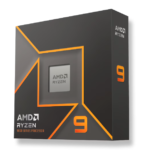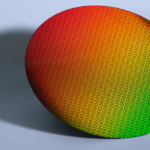The global semiconductor industry has been under the spotlight due to stringent export controls imposed by the US government to curb China’s technological advancements. However, a recent shift in policy has brought a glimmer of hope for chip equipment giants ASML and Tokyo Electron. The US has relaxed certain export restrictions, allowing these companies to resume shipments of some equipment to China. This move is expected to have far-reaching implications for the global chip supply chain, as well as for the broader geopolitical landscape
Easing Tensions
The new US regulations mark a significant departure from the previous hardline stance on China. The decision to ease restrictions on chip equipment exports was likely influenced by a combination of factors, including the desire to stabilize global supply chains, address inflationary pressures, and potentially open new avenues for diplomatic engagement. While the exact details of the new rules are still emerging, they are expected to provide some relief to the chip industry, which has been grappling with supply chain disruptions and soaring component prices.
Impact on ASML and Tokyo Electron
ASML, the Dutch semiconductor equipment giant, and Tokyo Electron, its Japanese counterpart, are among the biggest beneficiaries of the relaxed export controls. Both companies have been at the forefront of developing cutting-edge chip manufacturing equipment, and their technology is essential for producing advanced chips used in everything from smartphones to artificial intelligence. With the ability to resume shipments to China, these companies can now tap into a vast market and potentially boost their revenue.
Implications for the Global Chip Industry
The easing of export restrictions is expected to have a ripple effect on the global chip industry. Increased access to essential equipment could help China ramp up its chip production capabilities, potentially leading to a more competitive landscape. However, it’s important to note that the new rules are not a complete reversal of the US government’s policy. Certain advanced equipment will still be subject to export controls, and the overall goal of limiting China’s access to critical technologies remains unchanged.
Geopolitical Considerations
The US decision to relax export controls is also a significant geopolitical development. It signals a potential shift in Washington’s approach to China, with a focus on managing competition rather than outright containment. While the move is likely to be met with mixed reactions, it could open up new opportunities for cooperation between the two superpowers, particularly in areas such as climate change and global health.
Challenges and Opportunities
While the easing of export restrictions is undoubtedly positive news for the chip industry, it also presents new challenges. Companies like ASML and Tokyo Electron will need to navigate a complex regulatory environment and manage geopolitical risks. Additionally, the global chip shortage is still a pressing issue, and it remains to be seen how the new rules will impact supply chain dynamics.
Looking Ahead
The semiconductor industry is at a crossroads. The easing of export controls is a step in the right direction, but the road ahead is still fraught with uncertainties. As the global economy continues to evolve, the chip industry will need to adapt to new challenges and opportunities. By fostering innovation, strengthening supply chains, and promoting international cooperation, the industry can help drive economic growth and technological progress.
Conclusion
The US government’s decision to relax export restrictions on chip equipment is a significant development with far-reaching implications. While the move is likely to benefit companies like ASML and Tokyo Electron, it also raises important questions about the future of the global chip industry and the broader geopolitical landscape. As the industry navigates these complexities, it is essential to maintain a focus on collaboration, innovation, and sustainability.







